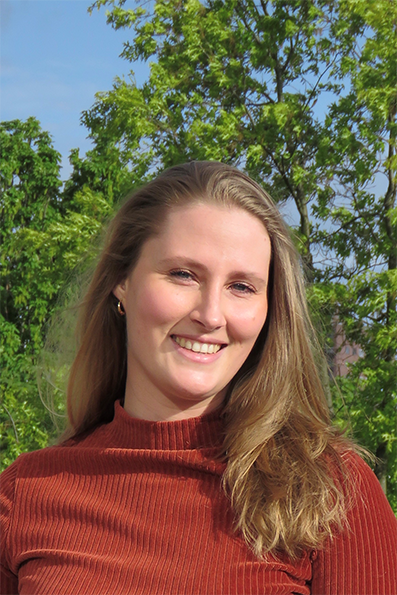‘I became interested in genetics during my Psychology Bachelor, when I followed the Minor Genetics in Society at the Erasmus Medical Center. After this minor, I strongly felt that I wanted to continue doing research in the field of genetics and the impact of genetics on people, both on an individual level and a societal level. I was thrilled when I learned that the Research Master of Genes in Behaviour and Health (GBH) would start, allowing me to study in a multidisciplinary group and to be able to contribute to research in the field of genetics from my background in Psychology, something I didn’t think would be possible before.
Within the master, I learned about genome wide association studies, epigenetics, gene-environment interactions, polygenic risk scores, and much more. I would recommend this master’s programme if you are intrigued by the role genes play in differences between people and you want to get to the bottom of its complexity. This field is rapidly developing and there is so much left to discover. The teachers of this master are excellent researchers themselves, and they will give you ample opportunity to gain research experience while being open to possible new ideas you bring to the table.
After this master, I personally chose to focus more on the societal aspects of developments in the field of genomics. I now work as a PhD student at the Department of Clinical Genetics at the Erasmus Medical Center, and as a core teacher in the newly developed Research Master Genomics in Society (GiS). I think the main difference between the master programmes is that GBH focuses more on understanding the genomic basis of differences between people, while GiS focuses more on aligning genomic science with the values and needs of society. I can see a bright future where GBH alumni and GiS alumni work together to advance our genomic understanding of health and behaviour, while using an approach that guards a positive societal impact.’
